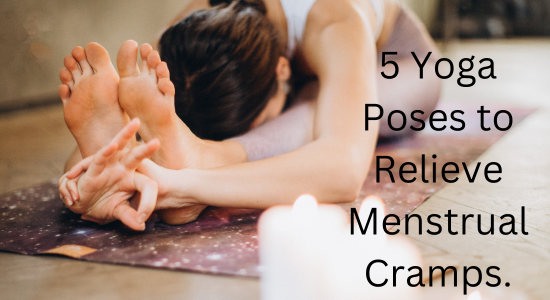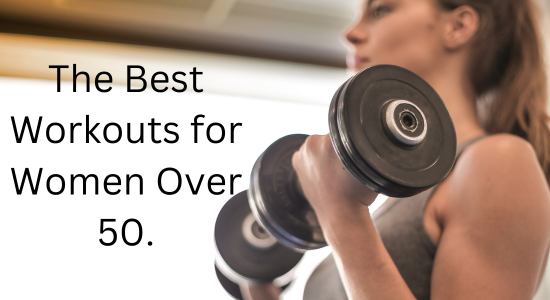Discover how proper nutrition enhances women’s fitness success by supporting muscle growth, energy, recovery, and hormonal balance for optimal performance.
For women striving to achieve their fitness goals—whether it’s building strength, improving endurance, or maintaining a healthy weight—nutrition plays a critical role. While workouts are essential for physical transformation, what you eat directly influences your body’s ability to perform, recover, and sustain progress. Understanding the connection between nutrition and fitness success helps women make informed choices that support their training and long-term health.
Women often face unique challenges in balancing fitness and diet, from hormonal fluctuations to energy demands during menstruation, pregnancy, or menopause. A well-structured nutrition plan can optimize metabolism, regulate hormones, and improve muscle function. The goal isn’t just to eat less but to eat smart — nourishing the body for strength and vitality.
Why Nutrition Matters for Women’s Fitness
Nutrition is the foundation of every successful fitness journey. When the body receives proper nutrients, it performs better, builds lean muscle, and recovers faster. For women, nutrition is particularly vital due to differences in metabolism, body composition, and hormonal needs.
-
Fuel for Energy
Carbohydrates are the body’s primary source of energy during exercise. Women engaging in intense cardio or strength training require sufficient carbohydrates to sustain performance and prevent fatigue. Skipping carbs can lead to sluggish workouts and slow recovery. -
Protein for Muscle Repair
Protein intake supports muscle growth and repair, especially after resistance training. Women often underestimate protein needs, leading to slower progress. Including lean sources like chicken, fish, eggs, beans, and Greek yogurt aids in muscle recovery and reduces soreness. -
Fats for Hormonal Balance
Healthy fats are essential for hormone production and regulation. They support menstrual health and energy levels. Avocados, olive oil, nuts, and fatty fish like salmon provide omega-3 fatty acids that improve heart health and reduce inflammation. -
Micronutrients for Overall Function
Vitamins and minerals play a key role in women’s fitness. Iron supports oxygen transport, calcium and vitamin D strengthen bones, and magnesium assists in muscle contraction. Deficiencies can impair energy, performance, and recovery.
Common Nutrition Mistakes Women Make in Fitness
Many women unintentionally sabotage their progress through poor dietary habits or misconceptions about “healthy eating.” Recognizing these mistakes helps establish a balanced and sustainable nutrition plan.
-
Eating Too Little
Restricting calories may lead to temporary weight loss, but it slows metabolism and depletes energy. Chronic under-eating can also disrupt menstrual cycles and weaken bones. Women should focus on nutrient density rather than severe calorie restriction. -
Over-Reliance on Supplements
Protein powders and vitamins can complement a diet but should not replace whole foods. A diet rich in natural sources of nutrients is more effective in the long run. -
Ignoring Timing of Meals
Skipping pre- or post-workout meals can hinder performance and recovery. Eating a balanced meal before exercise fuels muscles, while post-workout nutrition replenishes glycogen and aids muscle repair. -
Neglecting Hydration
Water is often overlooked in fitness routines. Dehydration affects muscle function, endurance, and concentration. Women should drink water consistently throughout the day, increasing intake before and after workouts.
Building a Balanced Nutrition Plan
A personalized and balanced nutrition plan ensures that women meet their fitness goals effectively. It should consider activity level, age, and specific health conditions.
-
Pre-Workout Nutrition
Eating 1–2 hours before training provides energy and prevents fatigue. A small meal combining carbohydrates and protein, such as oatmeal with nuts or a smoothie with banana and protein powder, works best. -
Post-Workout Nutrition
Within 30–60 minutes after exercise, women should consume protein and complex carbs to replenish glycogen and promote recovery. Examples include grilled chicken with quinoa or a protein shake with fruit. -
Daily Meal Balance
A day’s nutrition should include:-
45–55% carbohydrates (from whole grains, fruits, and vegetables)
-
25–30% healthy fats (from avocados, nuts, olive oil)
-
20–25% protein (from lean meat, eggs, dairy, or plant-based options)
-
-
Snack Smartly
Avoid processed snacks and instead choose options like yogurt, almonds, or apple slices with peanut butter. These keep energy levels stable and prevent overeating.
Nutrition for Different Fitness Goals
Women’s nutritional needs vary depending on their fitness objectives. Tailoring diet to specific goals ensures maximum results.
-
For Weight Loss
Focus on moderate calorie reduction with high protein intake to preserve muscle. Fiber-rich foods like vegetables and legumes enhance satiety. -
For Muscle Gain
Increase protein and calorie intake while incorporating strength training. Whole grains, eggs, and dairy support lean muscle development. -
For Endurance Training
Carbohydrates become even more crucial. Complex carbs like brown rice, oats, and sweet potatoes fuel long workouts. -
For Overall Health and Maintenance
A balanced diet emphasizing whole foods, hydration, and consistency supports hormonal stability and long-term energy.
How Hormones Affect Nutrition and Fitness
Hormonal fluctuations can significantly influence women’s appetite, metabolism, and energy levels. Understanding these changes helps adjust nutrition effectively.
-
Menstrual Cycle: During menstruation, iron-rich foods like spinach and lean meat help replenish blood loss. | Read about Anti-Inflammatory Foods That Reduce Menstrual Pain
-
Pregnancy: Nutrient demands rise; focus on folate, calcium, and omega-3s for fetal development.
-
Menopause: Lower estrogen levels can affect bone density and metabolism; increase calcium, vitamin D, and lean protein.
Balancing hormones through proper nutrition enhances exercise outcomes and reduces fatigue or mood swings.
Frequently Asked Questions (FAQ)
1. Should women eat differently from men when training?
Yes. Women have different hormonal cycles and metabolic rates, requiring specific nutrient timing and portions for optimal results.
2. What’s the best time to eat before working out?
Ideally, 1–2 hours before exercise. Include a mix of complex carbs and moderate protein for energy and endurance.
3. Can I skip breakfast if I train early in the morning?
It’s best not to. Even a light snack such as a banana with peanut butter improves performance and prevents dizziness.
4. How important is hydration in fitness success?
Very important. Dehydration reduces endurance, strength, and focus. Water also aids digestion and temperature regulation during workouts.
Conclusion
Nutrition is the driving force behind women’s fitness success. While training builds strength and stamina, food fuels and sustains the process. A balanced diet rich in whole foods, adequate hydration, and mindful eating ensures optimal results. For women of all ages, understanding the body’s nutritional needs transforms fitness from a short-term goal into a lifelong commitment to health and vitality.

